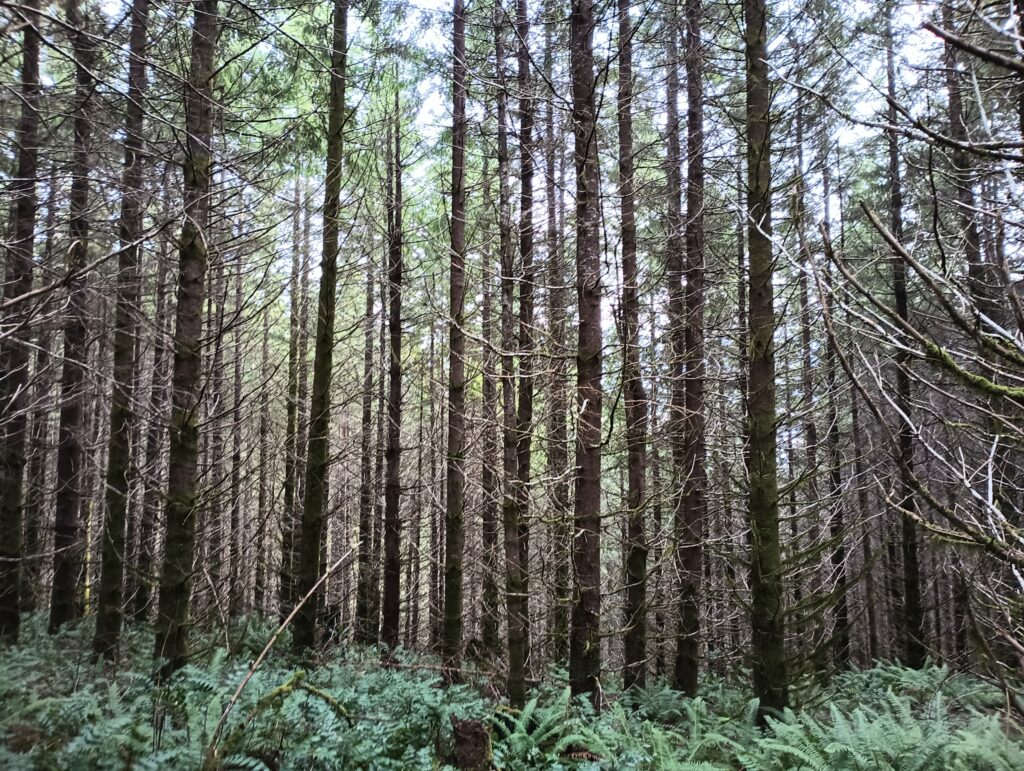In the quest for reforestation and combating deforestation, the practice of monoculture tree planting has gained traction in recent years. Monoculture, defined as the cultivation of a single crop in a given area, has been employed as a seemingly efficient way to re-establish forests quickly. However, despite its initial appeal, this method has raised significant concerns among environmentalists and experts due to its adverse impact on ecosystems and biodiversity.
Read this article by Yale Environment 360 to learn more about monoculture tree planting.
Lack of Biodiversity:
One of the most critical issues with monoculture tree planting is its negative effect on biodiversity. By planting a single species over large areas, these plantations lack the diverse range of flora and fauna that natural forests offer. Natural forests host an intricate web of plant and animal life, each contributing to the ecosystem’s balance. Monoculture plantations disrupt this balance, leading to decreased biodiversity. Such homogeneity renders these areas more susceptible to pests, diseases, and climate change impacts.
Vulnerability to Pests and Diseases:
Monoculture tree plantations create ideal conditions for pests and diseases to thrive. With a vast expanse of a single tree species, any vulnerability to a particular pest or disease can quickly escalate into an epidemic, devastating entire plantations. The absence of diverse plant species that might naturally repel certain pests or diseases further exacerbates this vulnerability.
Soil Degradation:
Continuous cultivation of a single tree species can degrade the soil quality over time. Unlike natural forests where various plants contribute to nutrient cycling, monoculture plantations often deplete the soil of specific nutrients. This results in soil erosion, reduced fertility, and increased dependence on chemical fertilizers, ultimately leading to long-term degradation of the land.
Impact on Water Resources:
Monoculture tree plantations can also have adverse effects on local water resources. These plantations often consume excessive amounts of water, leading to imbalances in local hydrological cycles. The demand for water by a single species can strain local water sources, affecting surrounding ecosystems and communities dependent on these resources.
Disruption of Indigenous Ecosystems:
Furthermore, monoculture tree plantations can disrupt indigenous ecosystems and habitats. Clearing land for these plantations often involves deforestation, which displaces native species and disrupts the intricate relationships between flora and fauna. This disruption affects the livelihoods of local communities and jeopardizes the survival of numerous species dependent on diverse forest ecosystems.
Climate Change Implications:
While reforestation efforts are often hailed for their potential to combat climate change by absorbing carbon dioxide, monoculture tree planting might have limited benefits in this regard. The sequestration potential of diverse natural forests exceeds that of monoculture plantations. Moreover, a lack of diversity in tree species can make these plantations more vulnerable to the impacts of climate change, such as extreme weather events.
Conclusion:
Monoculture tree planting, despite its initial appeal as a quick-fix solution for reforestation, poses severe risks to the environment, biodiversity, and local ecosystems. To ensure sustainable reforestation efforts, a shift towards diverse, native species planting, coupled with a focus on ecosystem restoration and conservation, is crucial. Embracing the complexity of natural forests and acknowledging their intrinsic value in supporting life forms is essential to safeguard our planet’s ecological balance and long-term well-being.

Jeff is founder of Terra Vida Academy and has been actively involved in protecting nature for over 35 years.




